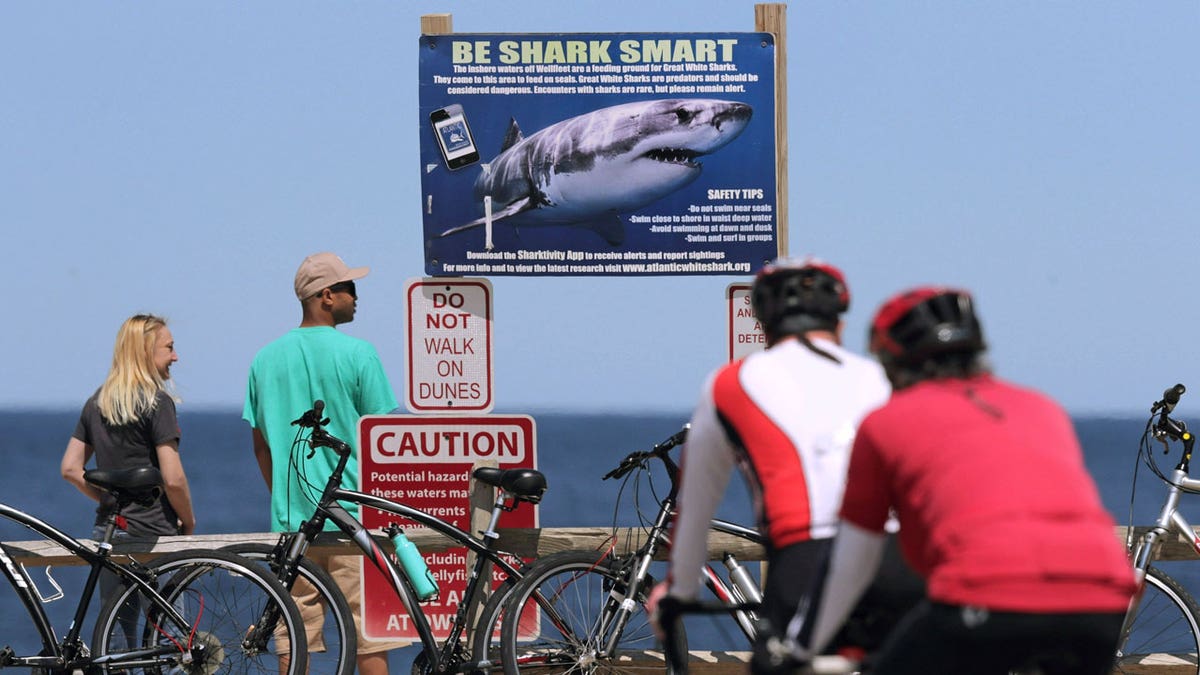Researchers are employing advanced technology, including camera-equipped sensors and drones, to monitor the white shark population off Cape Cod, Massachusetts. This initiative aims to better understand shark behavior and enhance public safety as tourists flock to the area for the summer, coinciding with the sharks' return to feed on seals.
While human-shark interactions are infrequent, the potential risk remains, with five incidents recorded in Massachusetts since 2012. Greg Skomal, a shark expert with the state's Division of Marine Fisheries, emphasized the importance of intensified research in light of these encounters.
For over a decade, researchers have tagged approximately 300 sharks with acoustic sensors that transmit signals to coastal receivers, alerting officials and lifeguards to their presence. This year, the focus has shifted to deploying more sophisticated camera sensors. These devices provide comprehensive data, including depth, direction, water temperature, and acceleration, offering a detailed view of shark behavior.

Megan Winton, a scientist at the Atlantic White Shark Conservancy, described the technology as giving sharks "smartphones," providing real-time insights into their movements and environment. This data is accessible to the public through a free app, promoting awareness and safety.
One video captured by a dorsal fin-mounted camera tag revealed a shark's hunting strategy in shallow water, showcasing its patient approach as it patrolled the shoreline. While the targeted seal escaped in this instance, the footage underscores the sharks' calculated hunting techniques.
Beyond predation, the technology has also unveiled the sharks' inquisitive nature, capturing them investigating objects like lobster buoys and floating debris. In addition to sensor tags, researchers are now utilizing drones for aerial shark spotting, a method successfully employed in other regions like Australia.
While the sensor system's effectiveness relies on tagging individual sharks, it significantly contributes to public awareness and informed decision-making at the beach. The goal is to educate the public about shark behavior and promote coexistence.
Comments(0)
Top Comments